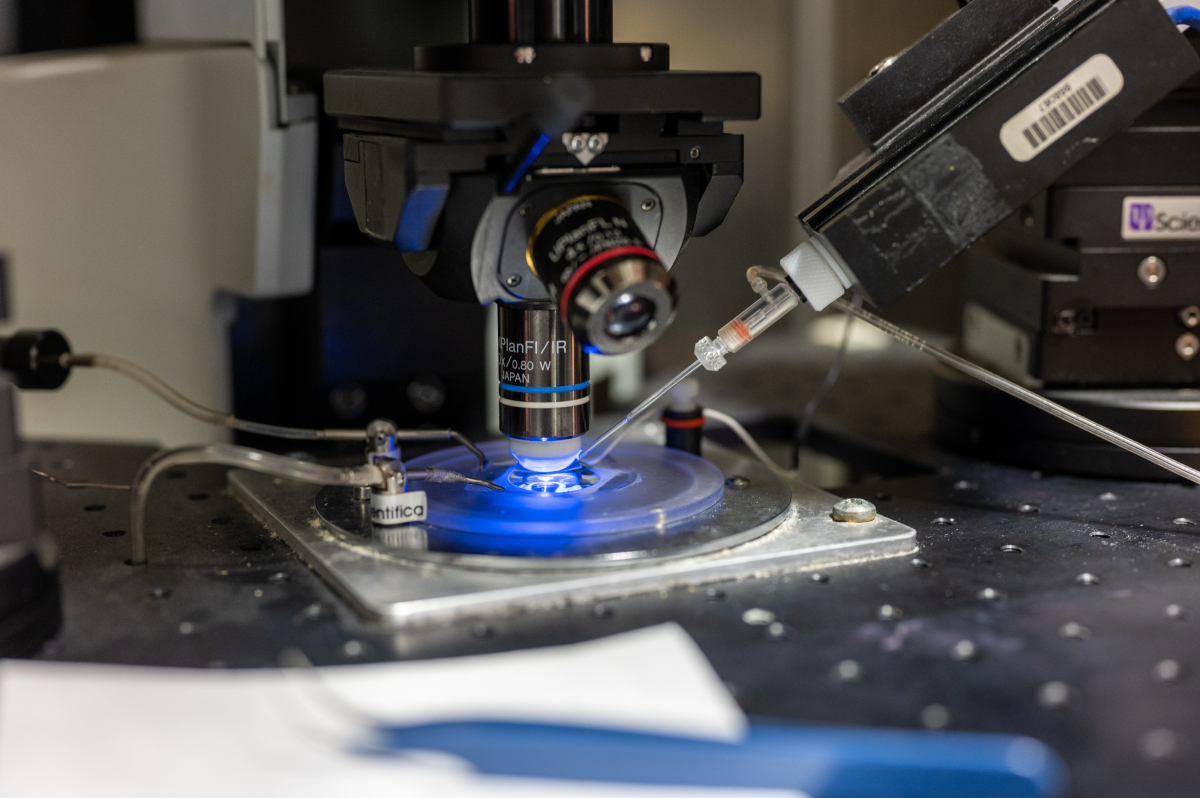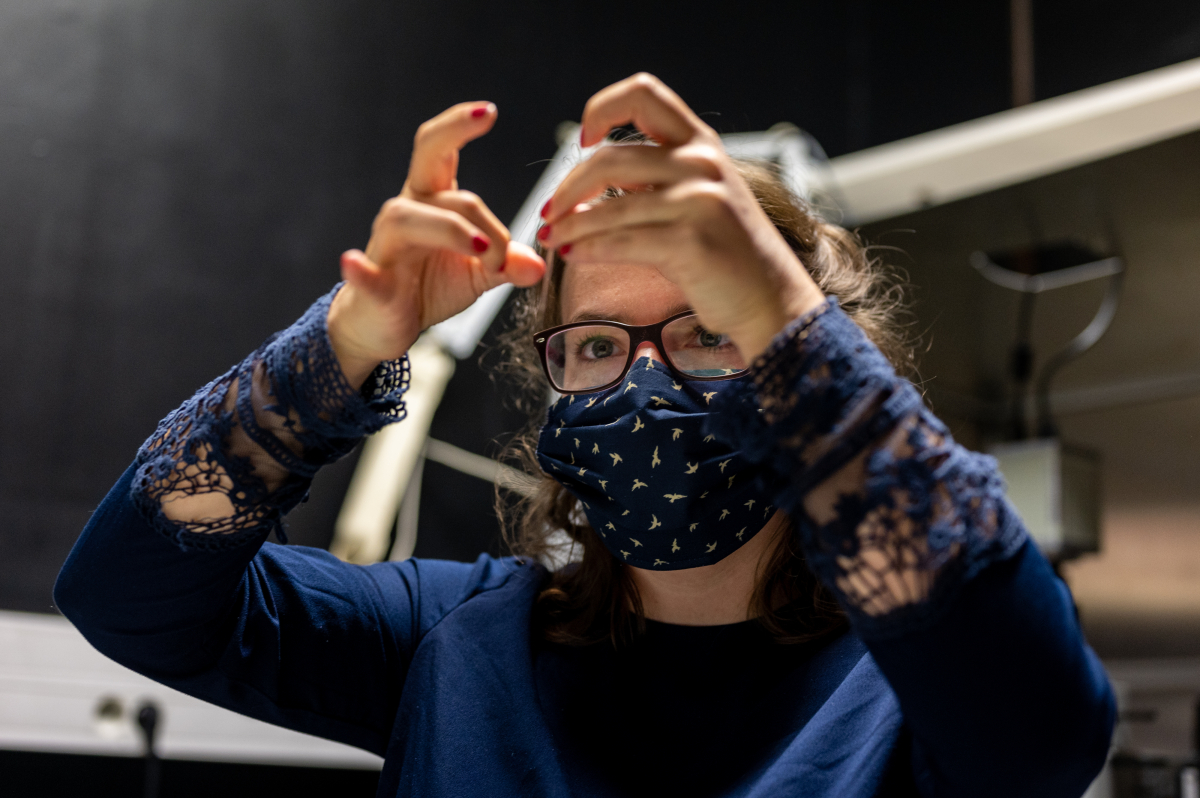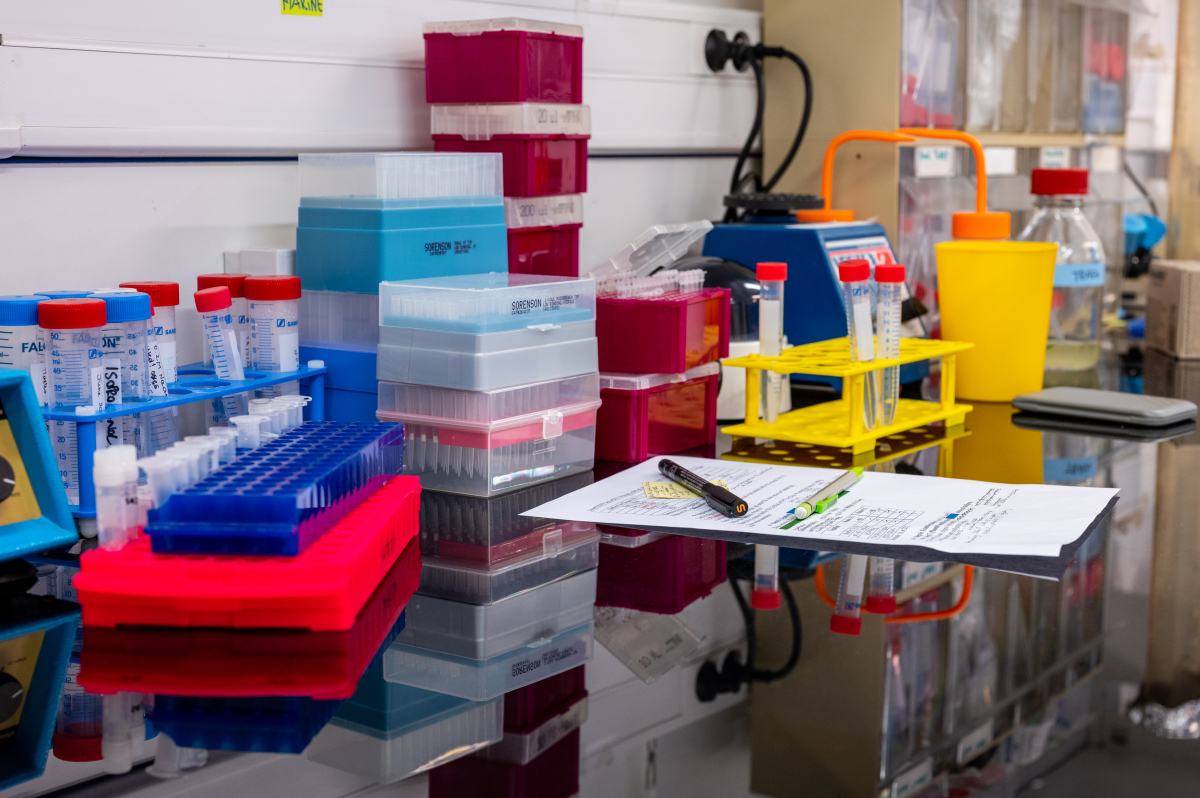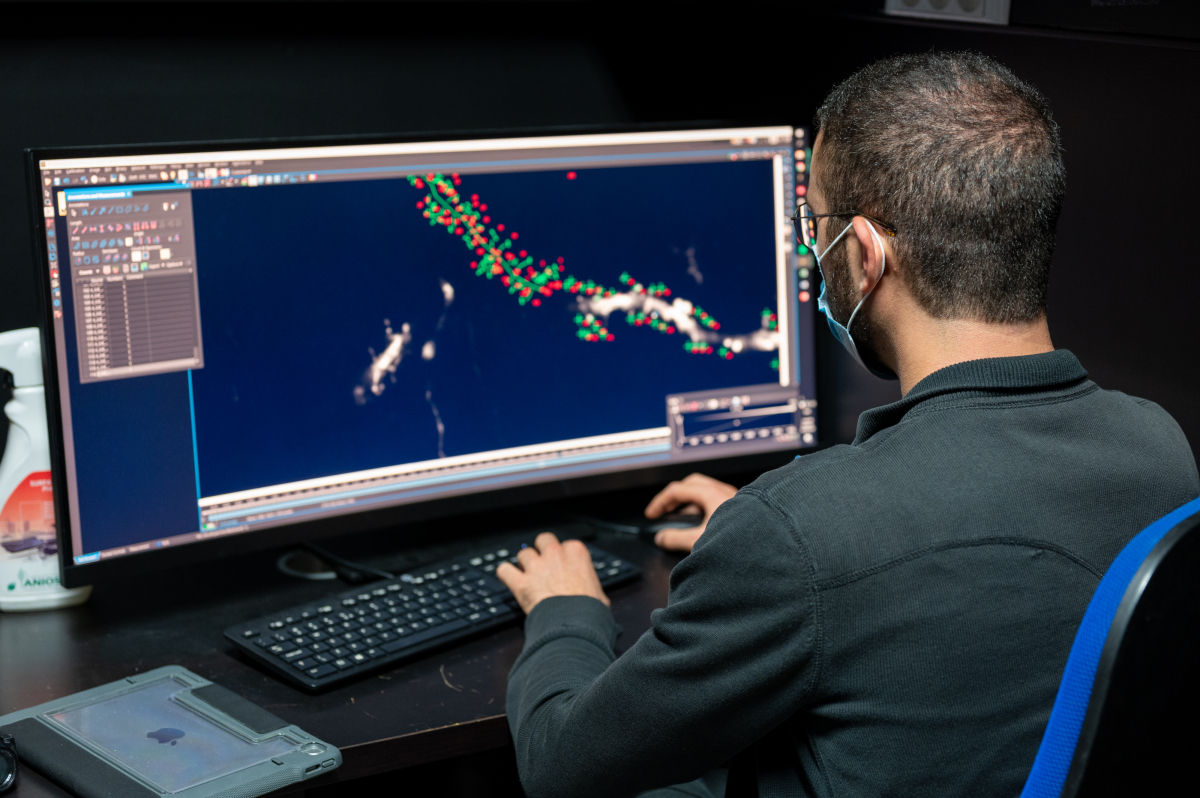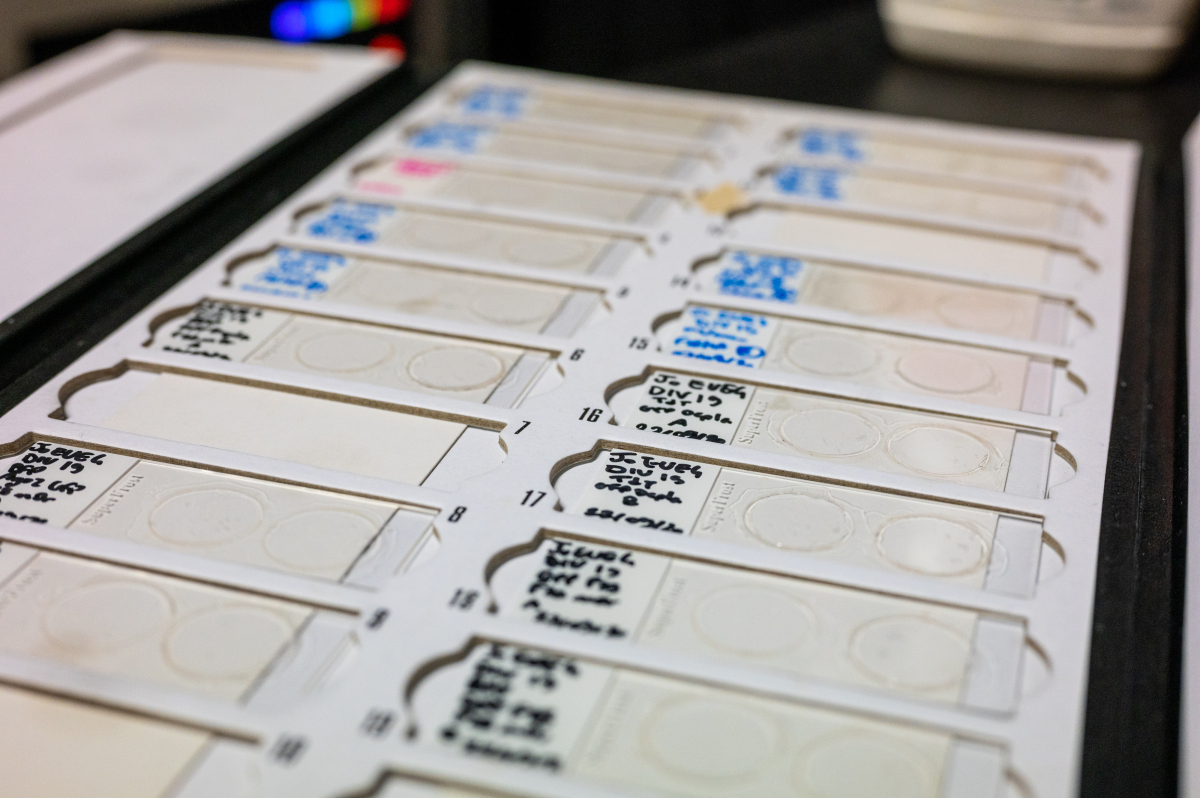Cécile Charrier Identifying the genes that make the human brain unique
Cécile Charrier, INSERM research fellow, team leader at the Institute of Biology of the École Normale Supérieure in Paris
- 2020 • Bettencourt Prize Coups d'Élan pour la recherche française
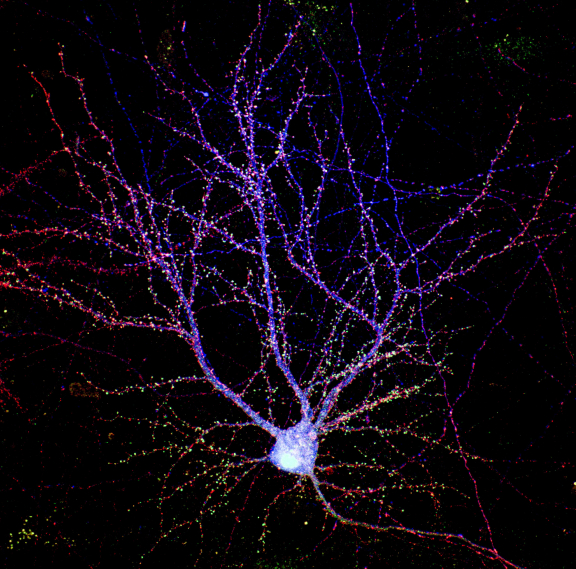
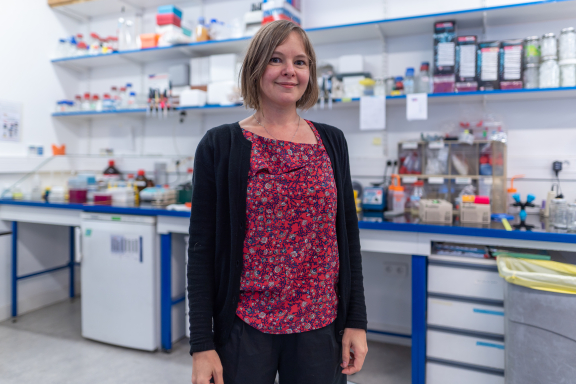

The 2020 Bettencourt Prize Coups d'élan pour la recherche française was awarded to neuroscience researcher Cécile Charrier for her work on the human-specific genes involved in synaptic plasticity.
What makes the human brain specific?
The brain is one of the most complex and fascinating organs. Synapses are its basic functional units. They are sub-micrometer structures that allow neurons to communicate with each other to send and process information. In humans, synapses have specific features compared to other primates or mammals studied so far. They develop over much longer periods of time, forming increasingly diverse circuits allowing them to absorb more information. These differences considerably strengthen the importance of the environment in brain maturation and increase its computational power. They are the basis of the cognitive and social skills that characterize Homo Sapiens.Dr. Charrier and her team study how new genes, which appeared during human evolution, modify the development and plasticity of synapses. The team is determining the role of these genes by researching their social network in brain cells and identifying the cellular processes they regulate. Previously, they showed that the human-specific gene SRGAP2C causes the emergence of typical human features of synapses (delayed maturation, increased numbers) and regulates key proteins in the assembly of neuronal circuits. The work sheds light on fundamental mechanisms existing in all mammals and identifies human-specific regulations, a major step towards better understanding the human brain’s vulnerability to disease, especially neuro-developmental disorders.
Research at the crossroads of disciplines
The team's work revolves around an original program at the crossroads of cell biology, evolution and neuroscience. Its multidisciplinary approach is based on high resolution microscopy, electrophysiology and proteomics and uses mouse models as well as human neurons derived from induced pluripotent cells. This combination aims to better understand the human brain’s uniqueness at a cellular and molecular level of study, which has been largely unexplored so far.
The foundation’s support
The Bettencourt Prize to Boost French Research will allow Dr. Charrier to create an L2 containment laboratory, which is essential for her research, and equip it with a fluorescence stereoscope.
Cécile Charrier in a few words
Cécile Charrier is a biologist specializing in neuroscience. After studying biology at the École Normale Supérieure de Paris, she joined Dr. Antoine Triller's team for her PhD to work on the biology of synapses. Using new single-molecule imaging technology, she studies the dynamics of the synapses’ glycine receptor with nanoscale precision. She demonstrated that receptor diffusion on the surface of neurons determines the effectiveness of synaptic transmission and is regulated by the cytoskeleton and the extracellular matrix.
She then joined the laboratory of Professor Franck Polleux in the United States for three and a half years to study the development of the cerebral cortex. She showed that a human-specific gene, SRGAP2C, is responsible for typical human characteristics of neuronal development and morphology.
With funding from the National Research Agency, Dr. Charrier returned to France in 2013 to create her own research group. As a researcher at Inserm, she developed a project aimed at understanding the mechanisms of synaptic plasticity and neuronal homeostasis by studying the molecular pathways linked to human evolution. Dr. Charrier actively shares her innovative research internationally. She is recognized for her teaching and transmission skills.
Bettencourt Prize Coups d'Élan pour la recherche française
The Bettencourt Prize Coups d'Élan pour la recherche française was created by the Foundation in 2000. It has rewarded 78 French laboratories and more than 900 researchers have benefited from this prize. Until 2021, this prize was awarded each year to four research teams, from Inserm and the CNRS Institute of Biological Sciences. The amount of the prize endowment was 250,000 euros per laboratory.
All the award-winners